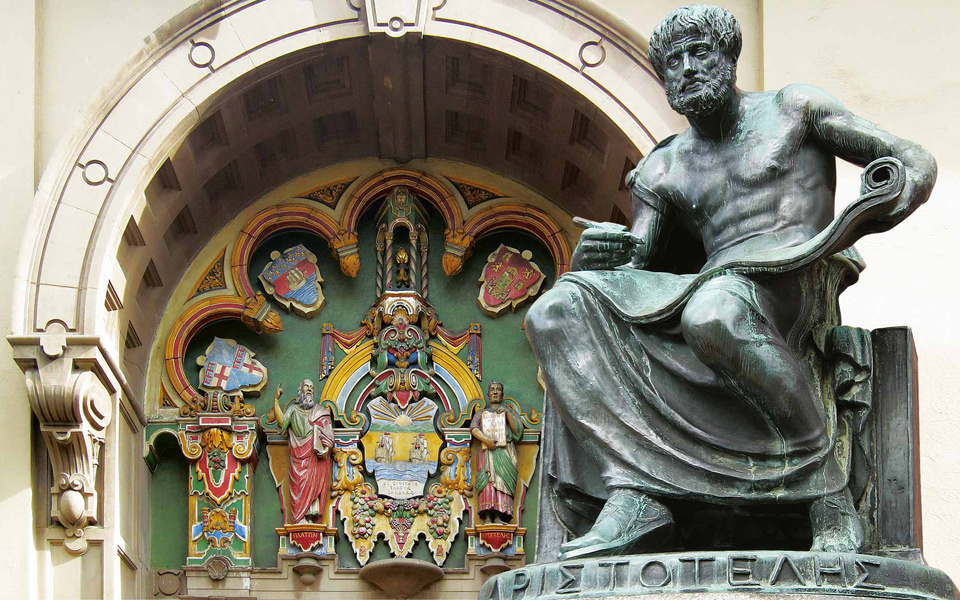“Α fundamental principle of the democratic form of constitution is liberty – that is what is usually asserted, implying that only under this constitution do men participate in liberty, for they assert this as the aim of every democracy.
But one factor of liberty is to govern and be governed in turn; for the popular principle of justice is to have equality according to number, not worth, and if this is the principle of justice prevailing, the multitude must of necessity be sovereign and the decision of the majority must be final and must constitute justice, for they say that each of the citizens ought to have an equal share; so that it results that in democracies the poor are more powerful than the rich, because there are more of them and whatever is decided by the majority is sovereign.
This then is one mark of liberty which all democrats set down as a principle of the constitution. And one is for a man to live as he likes; for they say that this is the function of liberty, inasmuch as to live not as one likes is the life of a man that is a slave.
This is the second principle of democracy, and from it has come the claim not to be governed, preferably not by anybody, or failing that, to govern and be governed in turns; and this is the way in which the second principle contributes to equalitarian liberty.
“ What is thought to be the extreme form of democracy and of popular government comes about as a result of the principle of justice that is admitted to be democratic, and this is for all to have equality according to number. ”
And these principles having been laid down and this being the nature of democratic government, the following institutions are democratic in character: election of officials by all from all; government of each by all, and of all by each in turn; election by lot either to all magistracies or to all that do not need experience and skill; no property-qualification for office, or only a very low one; no office to be held twice, or more than a few times, by the same person, or few offices except the military ones; short tenure either of all offices or of as many as possible; judicial functions to be exercised by all citizens, that is by persons selected from all, and on all matters, or on most and the greatest and most important, for instance the audit of official accounts, constitutional questions, private contracts; the assembly to be sovereign over all matters, but no official over any or only over extremely few;or else a council to be sovereign over the most important matters (and a council isthe beginning the most democratic of magistracies in states where there is not a plentiful supply of pay for everybody – for where there is, they deprive even this office of its power, since the people draws all the trials to itself when it has plenty of pay, as has been said before in the treatise preceding this one); also payment for public duties, preferably in all branches, assembly, law-courts, magistracies, or if not, for the magistracies, the law-courts, council and sovereign assemblies, or for those magistracies which are bound to have common mess tables.
Also inasmuch as oligarchy is defined by birth, wealth and education, the popular qualifications are thought to be the opposite of these, low birth, poverty, vulgarity. And in respect of the magistracies it is democratic to have none tenable for life, and if any life-office has been left after an ancient revolution, at all events to deprive it of its power and to substitute election by lot for election by vote. These then are the features common to democracies. But what is thought to be the extreme form of democracy and of popular government comes about as a result of the principle of justice that is admitted to be democratic, and this is for all to have equality according to number. For it is equality for the poor to have no larger share of power than the rich, and not for the poor alone to be supreme but for all to govern equally; for in this way they would feel that the constitution possessed both equality and liberty.”
∗“Politics”| Book 6 Sections 1317a and 317b
INFO
Aristotle (384-322 BC), one of ancient Greece’s pre-eminent thinkers, was pivotal in influencing western thought by taking a pioneering and systematic approach to the sciences. Politics, one of his greatest works, addressed the political institutions of antiquity. The Constitution of the Athenians was also analyzed in the book of the same name, which was discovered in 1879 in Egypt and has also been attributed to Aristotle.











